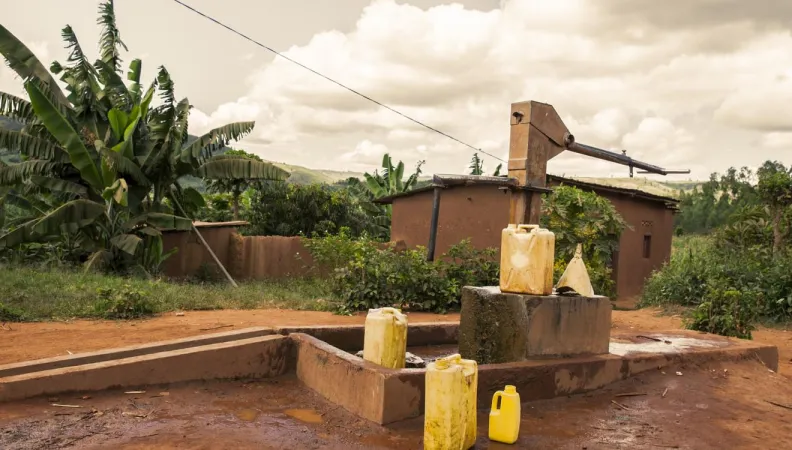Share the page
Enhancing water security in Africa : Metito’s mission in action
Published on

Private Sector & Development #42 - Access to water and sanitation: the private sector at the source
This magazine is dedicated to the role of private sector in the access to water and sanitation. A major issue at a time when more than 2.2 billion people worldwide still do not have access to safe drinking water in their homes and 3.5 billion people lack adequate sanitation.
Metito, a leader in water management solutions, has addressed water scarcity across Africa since its founding in 1958. Specializing in desalination, wastewater treatment, water reuse, and industrial solutions, Metito’s impact spans key global markets. Its contributions to water security and efforts to navigate water stress have been integral to its mission, helping communities thrive despite challenging conditions.
Africa faces severe water stress, affecting millions of lives. The continent grapples with outdated infrastructure, rapid population growth, and a lack of funding. According to the World Bank, one in three Africans experiences water scarcity, shaping the continent’s history and future, and underscoring the urgency of sustainable water management solutions. As climate change intensifies, in the form of severe droughts and floods, efficient management of water resources is becoming even more imperative.
Africa’s substantial untapped water resource potential to meet the needs of its growing population presents a significant opportunity. However, the challenge is how to tap into it and secure the necessary funding to do so. Metito has been at the forefront of addressing these issues, developing and investing in sustainable projects across 25 key markets in Africa. Its successful, pioneering efforts in introducing the Public-Private Partnership (PPP) model in Rwanda demonstrates the potential for positive change through strategic planning and collaboration.
COMMERCIAL VIABILITY AND SUSTAINABILITY : THE PERFECT MIX
In Rwanda, only 57% of the population has access to safe drinking water. The lack of safe water forces children, particularly girls, to spend time collecting water instead of attending school. Even when water is available nearby, it is often neither clean nor safe to drink, elevating the risk of water-borne diseases, severe illness, and even death (UNICEF, 2022). To address these needs and further engage foreign direct investment and the private sector, the Government of Rwanda awarded, as part of the Kigali Bulk Water Supply, a PPP with Kigali Water Ltd, a wholly owned subsidiary of Africa Water Infrastructure Development (AWID) – a Metito and British International Investment (BII) platform. AWID integrates green technologies and alternative energy components, reducing the environmental footprint of water infrastructure projects. The Kigali Water project is the first PPP of its kind in sub-Saharan Africa outside South Africa, and today supplies 25% of the potable water requirements of the City of Kigali. The impact of access to sustainable water on the community has been overwhelming, demonstrating the power of a common, progressive vision and a close partnership between the private and public sectors.
EGYPT : LEADING THE WAY IN AGRICULTURAL WASTEWATER REUSE
In Egypt, Metito with its partners developed the AlMahsama Water Reclamation Plant, the world’s largest agricultural wastewater reuse plant. Operational since May 2020, the plant treats 1M m3/day, and treated water is used for irrigation. This is enhancing Egypt’s water security and agricultural land sustainably in an area of significant political and environmental importance. Building on this success, Metito and JV partners teamed up with the Egyptian authorities on the New Delta Irrigation Water Treatment plant, the world’s largest water treatment facility, capable of processing 7.5M m3/day. Serving the North Coast area, including Greater Alexandria, this project effectively reduces dependence on the Nile River’s water. Egypt’s challenges with its neighbours regarding Nile water usage highlights the critical importance of these projects. Agriculture is typically the largest consumer of water, but by supplying treated wastewater for agricultural and industrial use, Metito’s initiatives significantly decrease overall water demand. The New Delta project represents one of the significant sustainability initiatives, incorporating state-of-the-art sustainable technologies and solutions. Completed within a record-setting time of 24 months, the plant serves as a pivotal component of Egypt’s national water resource plan, aiming to ensure water security and foster prosperity for future generations.
Author(s)
Rami Ghandour
CEO
Metito

